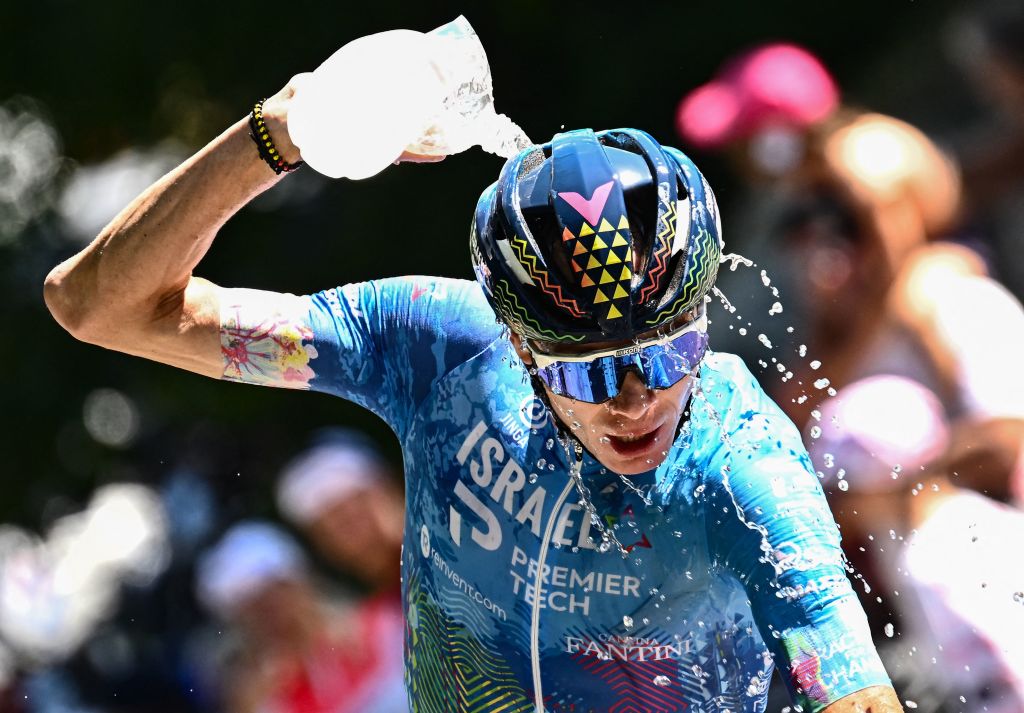Chris Froome highlights long-term dangers of COVID-19
Four-time Tour de France winner says his VO2 max took a hit and warns of 'strange heart rate readings'

Chris Froome has warned of the long-term effects of COVID-19, arguing that many riders are struggling for months post-infection and highlighting the potential risks to the heart.
The Israel-Premier Tech rider contracted COVID-19 for the first time at this year's Tour de France, forcing him to leave the race after 17 stages and curtailing what had seemed like significant progress in his long-term recovery from his 2019 crash.
The four-time yellow jersey winner returned to action at the Vuelta a España but, despite finishing the 21 stages, he largely struggled and only finished in the top 100 on five occasions.
"I came out of the season not feeling good," Froome said in his latest YouTube video. "I feel I really needed a break. COVID really knocked me for six."
"I just wasn't able to come back from that. I never felt like I had lots of energy on the bike. I went to the Vuelta to build through the race but all the way through I felt flat, flat, flat."
Froome also argued that his "VO2max was definitely affected by COVID".
Froome went to Israel for physiological testing earlier in the off-season and registered a VO2 max of 72.1, normalised to 75 if he were at race weight. In 2015, when Froome underwent testing in a bid to quell suspicion surrounding his performances, he registered a score of 84.6 normalised to 88.2.
Get The Leadout Newsletter
The latest race content, interviews, features, reviews and expert buying guides, direct to your inbox!
Froome highlighted what he saw as a cardiovascular hit from COVID-19, which he felt also extended to other "strange" heart problems. Pericarditis has been identified as a potential post-COVID heart issue, with Tim Declercq, Lizzy Banks and Maghalie Rochette among those having to take time away from racing.
"There's definitely a heavy impact on the heart, having COVID. It's not just like having the flu, like a lot of people think, especially for pro riders," Froome said.
"From those I've spoken to within the peloton, a lot of guys are really struggling with after-effects two or three months down the line - feeling fatigue, feeling as if they don't have the same energy levels, strange heart rate readings as well."
"It was good to go to Israel, do a whole load of physiological tests, go and check VO2 max, which was definitely affected by having COVID. So some heart checks which was important as well just to check that everything was all right."
Froome, who has also travelled to Singapore, Japan, UAE, and Miami in recent weeks, recently returned to training in Monaco and is joining Israel-Premier Tech's pre-season training camp in Spain this week. He has hinted that he could start 2023 at the Tour Down Under but Israel-Premier Tech's race schedule is still up in the air as they prepare to drop out of the WorldTour.
"It's great to get back into regular training," Froome said. "My body feels so much cleaner, everything's starting to work better, I'm less sluggish, more energy. I don't know if it's just those endorphins that I really missed but it feels great to be back training."
Patrick is a freelance sports writer and editor. He’s an NCTJ-accredited journalist with a bachelor’s degree in modern languages (French and Spanish). Patrick worked full-time at Cyclingnews for eight years between 2015 and 2023, latterly as Deputy Editor.
